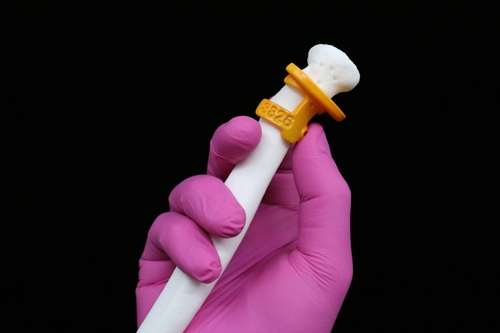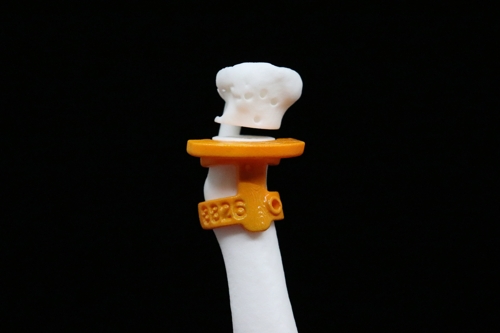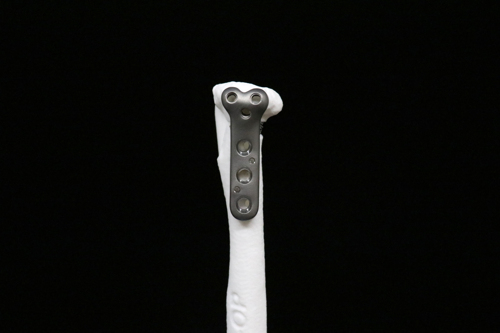
Orthopaedic
Patient-specific 3D printed titanium implants for complex cases. Precision surgery with osteotomy guides, drill guides. CT-based BioModel replicas for informed consent, surgical planning and navigation.
Orthopaedic Implants Patient Specific
In certain complex cases, off-the-shelf implants may be inadequate to deliver the desired surgical outcome. In such cases, Anatomics engineers work with the referring surgeon to use the patient’s CT scan to design a unique implant which is then 3D printed in titanium alloy. Such implants can include lattices, threads for locking screws and variable surface finishes. They are accompanied with a BioModel replica and optional Drill Guides and/or Cutting Guides as required.
Drill Guide Surgical Tool
These patient-specific 3D printed devices are used to assist the precise drilling of pre-planned pilot holes for plate fixation in cases where bone fragments are being realigned. Hole vectors are pre-planned by the Anatomics engineer with the referring surgeon and the guide holes accommodate plate fixation k-wires. Drill Guides are usually supplied with an accompanying Cutting Guide for the corresponding osteotomy and BioModel replicas.

Cutting Guide Surgical Tool
These patient-specific 3D printed devices assist to guide precision osteotomies or resections for bony reconstruction and are often used in conjunction with a corresponding Drill Guide for plate fixation. Cutting Guides may be immobilised with k-wires or screw fixation and are usually supplied with BioModel replicas to guide the sequence of surgery.

BioModel Surgical Tool
BioModels are an anatomical model derived from the patient's CT scan data to provide tactile representation of the patient’s anatomy and condition. BioModels may assist with informed consent, diagnosis and precise planning of the sequence of surgery. BioModels may be used to plan incisions and osteotomies and can be sterilised and used as an intra-operative navigation tool. In orthopaedic surgery, BioModels can be used in isolation to help plan and navigate surgery; or used in conjunction with Drill Guides and Cutting Guides to assist in usage and surgery sequence.





